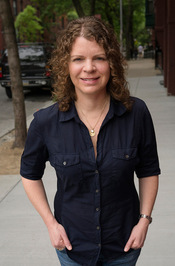Susan Stellin
Goodreads Author
Born
The United States
Website
Genre
Member Since
May 2016
To ask
Susan Stellin
questions,
please sign up.
Popular Answered Questions
* Note: these are all the books on Goodreads for this author. To add more, click here.
“Her advice boiled down to a consistent theme: that we all have to learn how to live with uncertainty, because some things are simply out of our control.”
― Chancers: Addiction, Prison, Recovery, Love: One Couple's Memoir
― Chancers: Addiction, Prison, Recovery, Love: One Couple's Memoir
“The best advice I got came from a colleague I didn’t know very well—or at least, not well enough to know that she once had a boyfriend who had a drug problem. When she told me about her ex, I instantly recognized the relationship she described, the intensity of his affection eventually trumped by the upheaval of his constant drama. The way she put it seemed so simple: “I realized I had to choose his life or mine.” I understood that decision—it was exactly how I felt after I bailed Graham out of Rikers. But there was one question that still troubled me, more as a moral dilemma most of us don’t want to face: What happens to these addicts after the sober, sane people in their lives leave them? We all know the answer: Many of them don’t get better. We lock them up, or they overdose and die.”
― Chancers: Addiction, Prison, Recovery, Love: One Couple's Memoir
― Chancers: Addiction, Prison, Recovery, Love: One Couple's Memoir
“When I asked him what he meant by desire, he answered, “I mean wanting something very intensely and with longing—having something that you want to get and that you don’t want to live without, so that you become willing to alter existing habits and conditions, so that they become less important than getting what you want.”
― Chancers: Addiction, Prison, Recovery, Love: One Couple's Memoir
― Chancers: Addiction, Prison, Recovery, Love: One Couple's Memoir






















